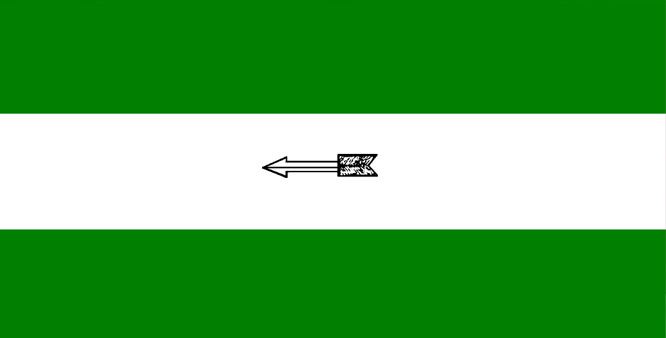Janta Dal United

The Janata Dal (United), commonly referred as the JD(U), is a regional political party in India. Its political position is centre-left operating on the ideologies of Integral humanism, Secularism and Socialism. Its mass base is primarily in the states of Bihar and Jharkhand. The JD(U) has a negligible presence in the 16th Lok Sabha, having only two seats out of 545. It has six seats in the Rajya Sabha.
The founder of the JD(U) is Sharad Yadav. The party traces its roots to the Janata Party, founded by Jayaprakash Narayan, the stalwart who united all anti-Congress parties during Indira Gandhi’s reign. The Janata Dal, which was a merger of Janata Party factions, the Lok Dal, the Jan Morcha and Congress(S), was split in 1999. The split took place over tensions when Karnataka Chief Minister J.H. Patel lent support to the BJP-led National Democratic Alliance (NDA). It was this issue that made the Janata Dal split into the Janata Dal (Secular) and Janata Dal (United) in 1999.
The JD(S) was formed under the leadership of H.D. Deve Gowda and the Janata Dal remained under the guidance of Sharad Yadav. In October 2003, the Lokshakti Party, and the Samata Party (also a breakaway faction of the Janata Dal) – led by veteran politician and former Defence Minister George Fernandes – merged with the Sharad Yadav’s faction of the Janata Dal. This merger led to the creation of JD(U).
Election Symbol and its Significance
The Election Symbol of the Janata Dal (United), as approved by the Election Commission of India, is the “Arrow”. This symbol was originally the symbol of undivided Janata Dal. The “Arrow” symbol is drawn on the middle white strip of a green and white flag. This flag was originally the flag of the Samata Party of George Fernandes. The Election Symbol of the Janata Dal (United) is hence significant as it indicates unity in the workings of the party.
The JD (U) draws inspiration from such great men like Mahatma Gandhi, Charan Singh, Lok Nayak, Dr. Ram Manohar Lohia, Jayprakash Narayan and others. They are focused on redressing the grievances of the common man of the country. The Janata Dal (United) has very similar aims and objectives like the other breakaway faction of the Janata Dal, the Janata Dal (Secular). The JD (U) believes that there should be equal opportunities for all citizens of the country, by focusing on building a ‘community that lasts.’ Irrespective of any social or political differences, the JD (U) believes in propagating the true values of Gandhian socialism and the rich heritage of the freedom struggle of India.
Leaders of the Party
The leaders of the JD (U), who are also the national executives of the party, are listed below:
- Sharad Yadav, President of JD(U)
- K.C. Tyagi, Chief Secretary General of JD(U)
- Javed Raza, General Secretary, JD(U)
- Arun Kumar Srivastav, General Secretary, JD(U)
- Shyam Rajak, General Secretary, JD(U)
- R.C.P. Singh, General Secretary, JD(U)
- Bhim Singh, General Secretary, JD(U)
- Mulana Gulam Rasool Baliawi, General Secretary, JD(U)
- Jageshwar Mehto, General Secretary, JD(U)
- Shahi Bhushan Saurabh, General Secretary, JD(U)
He is also the Chairperson of the JD(U). He was a Member of Parliament in the 15th Lok Sabha representing Madhepura constituency of Bihar. He lost this seat in the 2014 General Elections to Rajesh Ranjan of the RJD. He is also the Leader of the JD(U) in the Rajya Sabha. He was awarded the 2012 “Outstanding Parliamentarian Award” for his disciplined and dedicated performance in the Parliament of India.
He is a Member of Parliament, Rajya Sabha. He is also one of the spokespersons of the JD(U).
Nitish Kumar, Leader of Vidhan Sabha, Bihar
He is the Leader of the House of the Bihar Legislative Assembly.
Achievements of the JD (U)
As a regional political party, the JD (U) has had a number of significant achievements. Some of these are listed below:
The JD (U) has initiated caste-ridden politics in the states of Bihar and Jharkhand, where the issue of caste is very deeply-entrenched. The development concerns in the state, under Chief Minister Nitish Kumar have been garnered around issues of casteless society. Kumar has emphasized on removing the tag of “backwardness” attached to Bihar. He has made available reservation policies against the so-called minority communities in Bihar, such as the Muslims, Dalits, Mahadalits and Extremely Backward Castes.
JD (U) has worked towards decreasing the rates of crime and lawlessness in the states of Bihar and Jharkhand. The Nitish Kumar government ensured that the culprits in the Bhagalpur riots were put behind the bars, even though after a long span of time.
In the health sector, the JD (U) ensured that many doctors were sent to primary health clinics spread across the states of Bihar and Jharkhand, such that the poor people got cheap health care facilities and diagnosed correctly.
The education facilities were made accessible to the poorest people of Bihar, by ensuring the recruitment of good teachers and professors in the various schools and colleges across the two states.
The Nitish Kumar government has been working towards its goal, “Brand Bihar”, by drawing attention of big corporate houses and foreign investors, to invest in the state.

